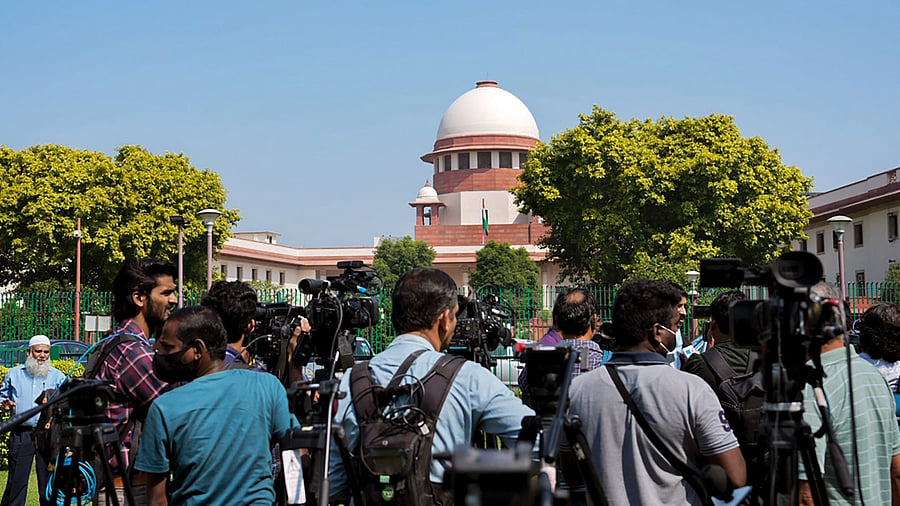
The Supreme Court on Friday ordered the release of a man sentenced to 18 years in jail for electricity theft in 9 separate cases, saying if it were not to interfere in matters of personal liberty, then “what are we here for”.
"No case is too small for the Supreme Court and no case is too big because we have to answer the call of conscience and the cry of liberty of our citizens. That is why we are here and these are not one of cases, when you sit here and burn the midnight oil, you realise that every day there is another one like this,” a bench presided over by Chief Justice D Y Chandrachud said.
Advocate Ansar Ahmad Chaudhary, representing the petitioner Iqram, contended that the jail authorities were adamant to keep the petitioner in jail for 18 years (in total) contrary to the judgments and orders of November 5, 2020, passed by Additional District Sessions Judge, Hapur in nine cases.
He said the trial court has directed to set off the undergone period against the period of sentence and from the judgment itself it can be inferred that the sentences would run concurrently. But the jail authorities were adhering to the object of Section 428 of CrPC, he contended.
The top court noted that the high court should have noticed the serious miscarriage of justice and "liberty of a citizen would be abrogated" if the petitioner is not released.
The top court was informed that the petitioner has already served three years after a trial court handed him a two-year sentence in nine cases.
In the case, Iqram accepted plea bargaining and he was sentenced to two years in each of the nine cases. The authorities, however, decided that the sentences have to run consecutively, instead of concurrently, which resulted in 18 years of imprisonment.
The bench, also comprising Justice P S Narasimha said it was an “absolutely shocking case".
Iqram moved the Supreme Court after the Allahabad High Court refused to order that his sentences should run concurrently.
The Chief Justice said, “If we don't interfere in matters of personal liberty, and we don't order the release of this person, then what are we here for….”.
The bench also sought assistance of senior advocate and former Madras High Court judge S Nagamuthu, who was present in the courtroom for another case, to resolve the matter. On the aspect of 18 year imprisonment, Nagamuthu said this becomes a life sentence.
Releasing the petitioner, the top court, in its order, noted, "The right to personal liberty is an inalienable right. In attending to such grievances, the Supreme Court performs its duty, no more and no less".
The bench further said, “If the court were not to do so, the serious miscarriage of justice of the nature which has emerged in the present case would be allowed to persist and the voice of the citizen whose liberty has been abrogated would receive no attention”.
The petitioner was arrested in 2019 and convicted in 2020 under the Electricity Act.
The plea filed by petitioner claimed he has been detained by the jail authorities and still undergoing the sentence at their wish and will.

